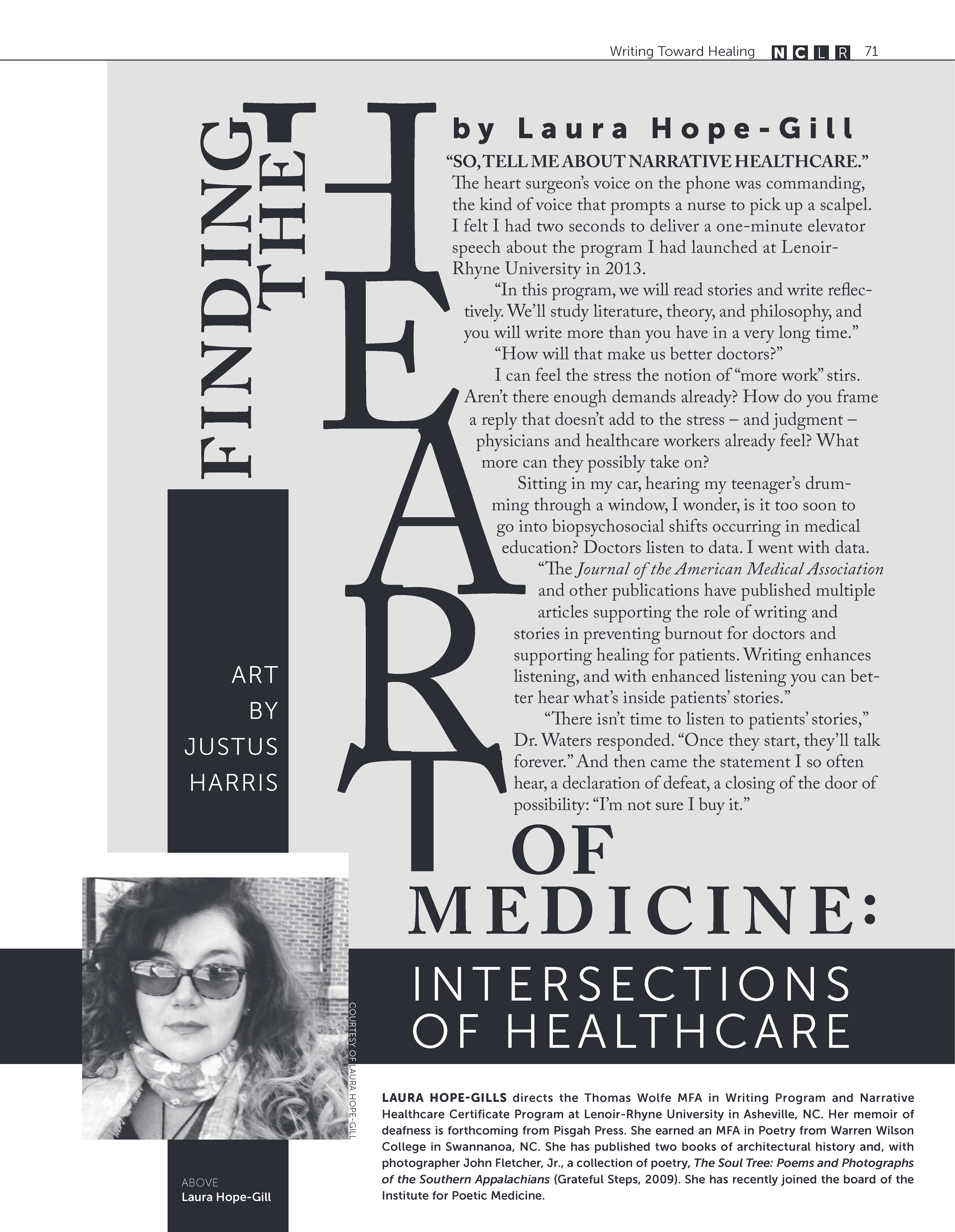Friday from the Archives: “Finding the Heart of Medicine: Intersections of Healthcare and Writing” by Laura Hope-Gill from NCLR 30 (2021)
Our 2024 Feature of “Disability Literature of North Carolina” introduces us to new, emerging, and long-overlooked writers and subjects living with various disabilities. Our feature writing started in the NCLR Online Winter issue, with Laura Hope-Gill’s Albright-winning essay on finding herself blind after a fall and concussion.
Hope-Gill was already deaf, which she wrote in her essay for the 2021 feature on “Writing and Healing:” “As a writer, a daughter of two medical practitioners, and a deaf person, I explore the intersection of writing and healing with a personal passion. I find the studies of writing’s impact on physical healing fascinating, largely because physical proof is what matters in a mechanistic society. As a poet with an interest in depth psychology and Mahayana Buddhism, I am equally intrigued to see the conversation developing in medicine regarding the intangible forms of healing writing provides.”
Hope-Gill’s work teaching doctors how to use narrative to provide better care was directly related to her own experience of her deafness. She wrote, “I came to accept and understand my deafness when I wrote about it, which I started to do four years after my diagnosis, when I realized technology only addressed one level of the deafness. Once I started, I drafted an entire book’s worth of observations, questions, and metaphors for what I was experiencing…. Writing these essays formed the meaning of deafness for me, something I needed beyond digital hearing aids and lipreading.”
While there may not be healing in a contemporary sense of “no longer having a pain” for those with disabilities, there is a sense of “accepting (and even appreciating) and making the best of” healing in the use of many art forms to provide insight and understanding of one’s own humanity, whatever form that takes. Both of Hope-Gill’s essays show an author and visual artist making full use of herself, even if part of her physical body is no longer complete.
Read the entire essay on ProQuest or purchase a copy of the 2021 issue.
